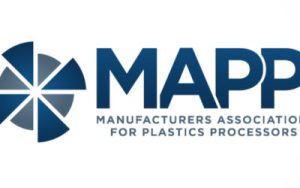
In today’s highly competitive market, maintaining high standards of quality is essential for the success and sustainability of any business. One of the most recognized and respected frameworks for quality management is ISO 9001. This international standard sets the criteria for a quality management system (QMS) and is used by organizations across the globe to demonstrate their commitment to quality, customer satisfaction and continuous improvement.
In this blog post, we’ll explore what ISO 9001 is, the benefits of achieving ISO 9001 certification and how it can impact your business.
What Is ISO 9001?
ISO 9001 is part of the ISO 9000 family of standards, which are designed to help organizations ensure that they meet the needs of customers and other stakeholders while adhering to statutory and regulatory requirements. ISO 9001 focuses specifically on the requirements for a quality management system (QMS).
First published in 1987 by the International Organization for Standardization (ISO), ISO 9001 has undergone several revisions, with the most recent version released in 2015. The standard is based on several quality management principles, including a strong customer focus, the involvement of top management, a process-based approach and continuous improvement.
Key Principles of ISO 9001:2015
- Customer Focus: Understanding and meeting customer needs is at the heart of ISO 9001. This involves consistent efforts to enhance customer satisfaction.
- Leadership: Effective leadership ensures that everyone in the organization is aligned with the quality objectives and contributes to achieving them.
- Engagement of People: Involving and empowering employees at all levels fosters a quality-focused culture.
- Process Approach: Managing activities and resources as interconnected processes helps achieve consistent and predictable results.
- Improvement: Continuous improvement is a fundamental principle, enabling the organization to enhance its performance over time.
- Evidence-Based Decision Making: Decisions are based on the analysis and evaluation of data and information.
- Relationship Management: Sustaining successful relationships with suppliers and other stakeholders is crucial for delivering quality products and services.
Why ISO 9001 Certifications Matter for Your Business
Achieving ISO 9001 certification offers a range of benefits that can positively impact every aspect of your business.
Improved Efficiency and Consistency
ISO 9001 requires organizations to implement standardized processes, which improves efficiency and consistency in operations. By clearly defining roles, responsibilities and procedures, businesses can reduce errors, minimize waste and streamline their workflows.
Enhanced Customer Satisfaction
With a strong focus on customer needs and expectations, ISO 9001 helps businesses deliver products and services that meet or exceed customer requirements. This not only enhances customer satisfaction but also fosters long-term loyalty and repeat business.
Competitive Advantage
ISO 9001 certification is globally recognized and can be a powerful differentiator in the marketplace. It demonstrates to customers, suppliers and partners that your organization is committed to quality and continuous improvement, giving you a competitive edge.
Better Risk Management
ISO 9001 emphasizes risk-based thinking, encouraging organizations to identify potential risks and opportunities in their processes. By proactively addressing these risks, businesses can prevent issues before they occur, leading to more stable and predictable outcomes.
Compliance with Regulatory Requirements
Many industries have strict regulatory requirements that businesses must adhere to. ISO 9001 provides a framework for consistently meeting these requirements, reducing the risk of non-compliance and potential legal issues.
Continuous Improvement
ISO 9001 promotes a culture of continuous improvement, where businesses are encouraged to assess their processes and performance regularly. This ongoing focus on improvement helps organizations stay agile and responsive to changing market conditions.
Employee Engagement and Satisfaction
When employees are involved in defining and improving processes, they are more likely to feel valued and engaged. ISO 9001 fosters a culture of collaboration and empowerment, which can lead to higher job satisfaction and retention rates.
How to Achieve ISO 9001 Certification
Achieving ISO 9001 certification involves several steps, but the investment is well worth the benefits.
Understanding the Requirements
The first step is to familiarize yourself with the ISO 9001:2015 standard and understand its requirements. This may involve attending training sessions, consulting with experts, or hiring a quality management consultant.
Gap Analysis
Conduct a gap analysis to assess your current processes and identify areas that do not meet the ISO 9001 requirements. This analysis will help you understand what needs to be done to achieve compliance.
Developing a Quality Management System
Based on the gap analysis, develop or update your quality management system (QMS) to align with ISO 9001 standards. This includes documenting processes, procedures, and responsibilities, as well as implementing controls to ensure consistency and quality.
Training and Implementation
Train your employees on the new or updated QMS and begin implementing the necessary organizational changes. It’s important to ensure everyone understands their role in maintaining the QMS.
Internal Audits and Review
Conduct internal audits to verify that your QMS is functioning effectively and meeting the ISO 9001 requirements. Management reviews should also be conducted to assess the QMS’s performance and identify opportunities for improvement.
Certification Audit
Once your QMS is fully implemented and operational, you can apply for certification with an accredited certification body. The certification audit involves thoroughly reviewing your QMS to ensure it meets ISO 9001 standards. If successful, your organization will be awarded ISO 9001 certification.
Continuous Improvement and Re-Certification
ISO 9001 certification is not a one-time achievement. You must continually improve your QMS and undergo regular surveillance audits to maintain your certification. Re-certification is typically required every three years.
ISO 9001 is more than just a certification—it’s a commitment to quality, efficiency, and customer satisfaction. Implementing an ISO 9001-compliant quality management system can bring your business numerous benefits, from improved operational efficiency to enhanced customer loyalty.
Whether you are a small business looking to gain a competitive edge or a large organization aiming to maintain high standards, ISO 9001 provides a proven framework for achieving excellence. By embracing the principles of ISO 9001, you can build a strong foundation for long-term success in today’s dynamic business environment.







